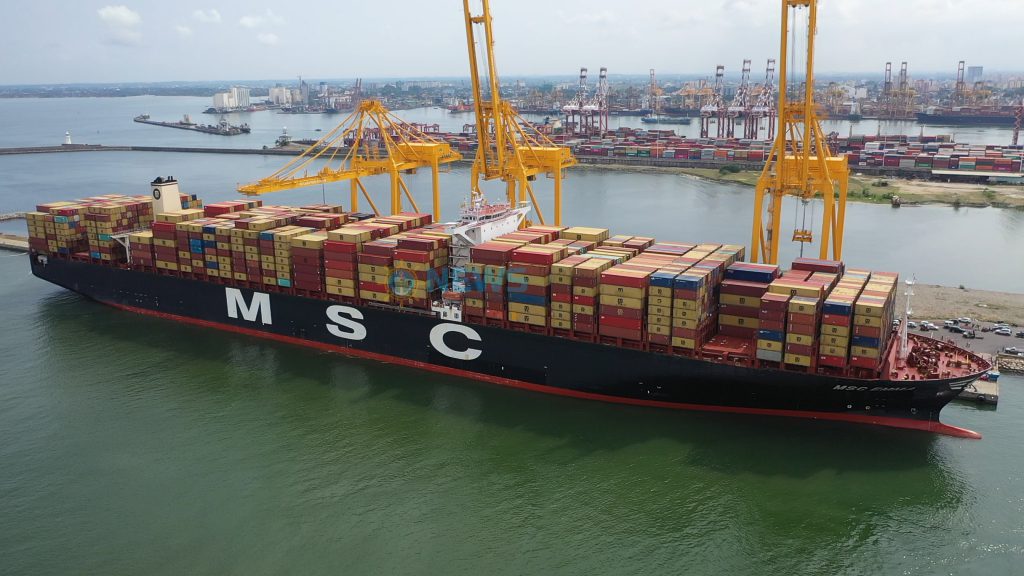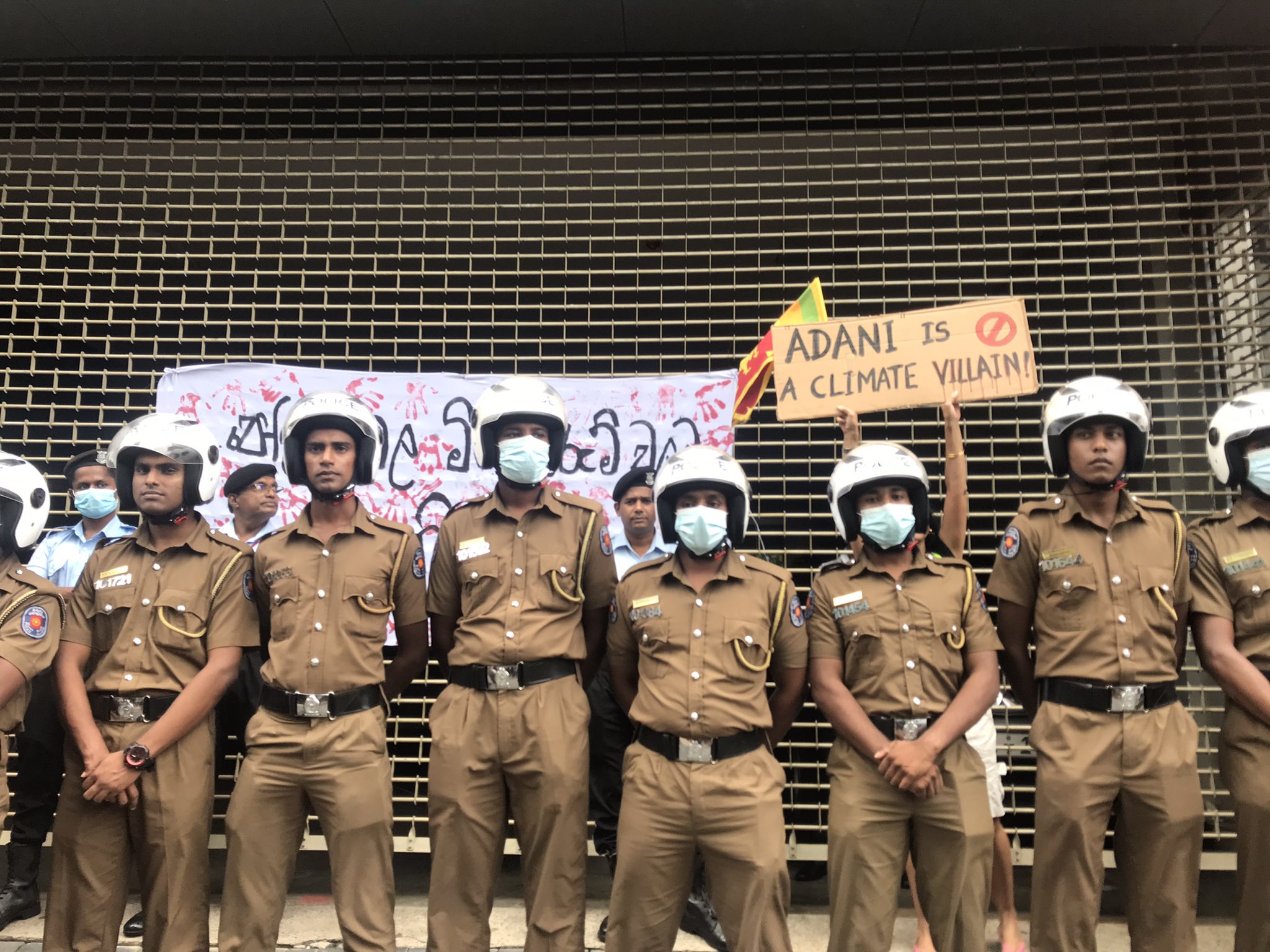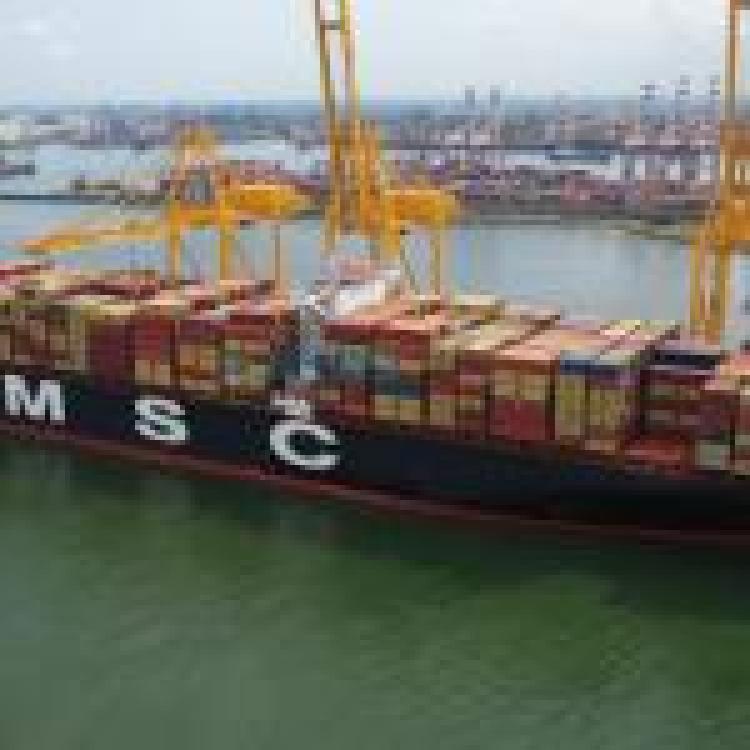
File photograph: Colombo's Port.
The controversial Indian conglomerate Adani Group has announced it will self-fund the Colombo West International Terminal (CWIT) project in Sri Lanka, withdrawing its request for a $553 million loan from the US International Development Finance Corporation (DFC).
This decision follows allegations of bribery and fraud leveled against Adani by US authorities.
The CWIT, a joint venture between Adani Ports, John Keells Holdings, and the Sri Lanka Ports Authority, is designed to enhance the capacity of Colombo’s port, aiming to make it a major transshipment hub in the Indian Ocean. The terminal, initially scheduled to be operational this month, is now expected to open early next year, according to Adani Ports.
The DFC loan was announced in November 2023 and thought to have been part of the US’s strategy to counter China’s growing influence in South Asia, with Washington positioning itself as a key partner in Sri Lanka’s infrastructure development. However, last month, Adani was hit with criminal and civil charges in the US, including allegations of misleading investors about $250 million in bribery tied to a renewable energy project.
While the Adani Group denies all wrongdoing, claiming “every attack makes us stronger,” the company announced on Tuesday that it had withdrawn its request for financing. "The project will be financed through the company’s internal accruals and capital management plan," Adani Ports stated in a filing to India’s Bombay Stock Exchange. "We have withdrawn our request for financing from the DFC."
The CWIT project has been controversial since its inception in 2021, with accusations of cronyism and a lack of transparency. Adani secured a 51% stake in the project, with John Keells Holdings holding 34% and the Sri Lanka Ports Authority retaining 15%. The deal came after Sri Lanka scrapped an agreement with India and Japan to develop the East Container Terminal (ECT), reportedly straining Indo-Lanka relations.
The Adani Group’s involvement has faced criticism for its opaque selection process. While Colombo claims Adani was proposed by India, New Delhi denied this, with the Indian High Commission stating that any nomination of Adani for the project was “factually incorrect.”

Protestors outside the Indian High Commission in Colombo, 2022.
The Adani-led project also faced protests in Sri Lanka. Demonstrators gathered outside the Indian High Commission in Colombo in 2022, chanting "Stop Adani, Stop Adani!"
The US loan, which would have been the DFC’s largest infrastructure investment in Asia, was positioned as part of a broader Indo-US strategy to counter Chinese influence in the region. However, DFC Chief Executive Officer Scott Nathan underscored the importance of “financially sustainable transactions” and criticized projects like China’s Hambantota Port for their unsustainable debt structures.
“We are not interested in giving money to projects that are not going to work,” Nathan said last year, in a veiled critique of Beijing’s investments. While the CWIT was promoted as a project that would avoid adding to Sri Lanka’s sovereign debt, Adani’s withdrawal has raised concerns about the viability of such private-public partnerships.
The latest announcement by Adani comes as the administration of Sri Lanka’s new president, Anura Kumara Dissanayake, has launched investigations into Adani’s projects across the island. These include renewable energy deals in the Tamil North-East, which were also criticised for lacking transparency.

